Home>Dining>Tableware>Why Does My Silverware Taste Like Metal
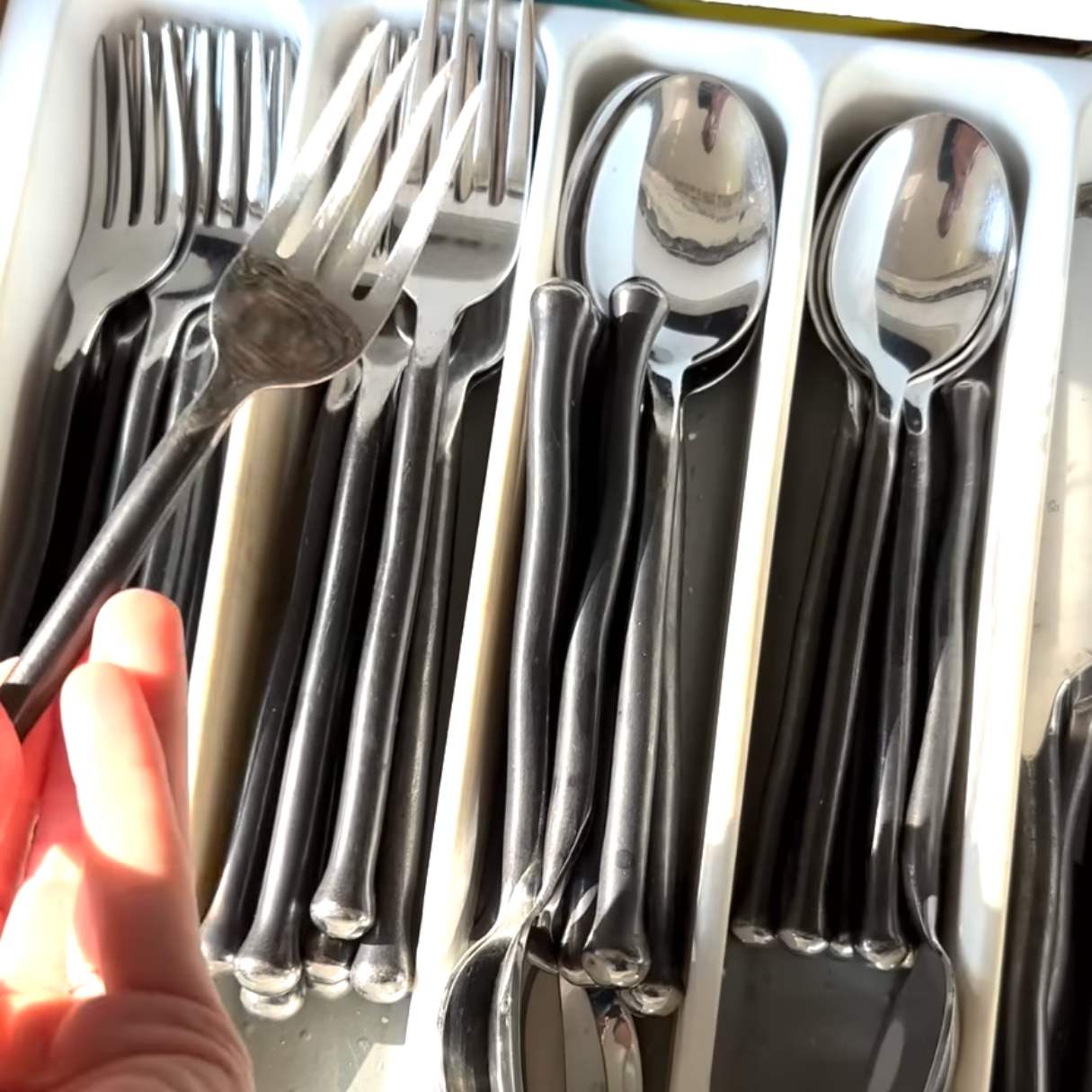

Tableware
Why Does My Silverware Taste Like Metal
Modified: January 9, 2024
Discover why your tableware tastes like metal and learn how to eliminate this unpleasant sensation. Find solutions and tips for enjoying your meals without any metallic aftertaste.
(Many of the links in this article redirect to a specific reviewed product. Your purchase of these products through affiliate links helps to generate commission for Storables.com, at no extra cost. Learn more)
Introduction
Have you ever sat down to enjoy a delicious meal, only to find that your silverware leaves a metallic taste in your mouth? It can be quite unpleasant and spoil the overall dining experience. But why does this happen? In this article, we will explore the reasons behind the metallic taste in your silverware and provide solutions to prevent it.
Silverware, also known as tableware or cutlery, is a term used to describe utensils typically made from various metals such as stainless steel, silver, or even gold. These utensils are an essential part of our everyday lives, allowing us to eat our meals with ease and style. However, when the taste of metal leaches into our foods, it can be off-putting and affect the flavors we perceive.
Understanding the causes of metallic taste in silverware is crucial in finding effective solutions. It can be attributed to a variety of factors, including the composition of the silverware, how it is cleaned and maintained, reactions with certain foods, and even potential allergic reactions. Additionally, certain medical conditions can also contribute to the metallic taste.
In the following sections, we will delve deeper into each of these causes and provide practical tips on how to prevent the metallic taste in your silverware. By gaining a better understanding of these factors, you can enjoy your meals without any unwanted metallic flavor.
Key Takeaways:
- Choose high-quality stainless steel or hypoallergenic silverware to minimize metallic taste. Proper cleaning, avoiding reactive foods, and addressing allergies and medical conditions can enhance your dining experience.
- Experiment with different silverware materials and cleaning techniques to find what works best for you. Consult healthcare professionals for personalized advice on managing allergies and medical conditions related to metallic taste.
Read more: What Does Thyme Taste Like?
Understanding Metallic Taste in Silverware
The metallic taste in silverware occurs when the metal from the utensils interacts with the food or drink being consumed, resulting in a distinct metallic flavor. This taste can vary in intensity, ranging from a subtle hint to a strong and unpleasant sensation. Understanding the underlying causes of this phenomenon can help in finding solutions to prevent it.
One key factor contributing to the metallic taste is the composition of the silverware itself. Different metals have varying properties, and some are more prone to transferring their taste to food. Stainless steel, which is commonly used in modern silverware, may have a lower chance of imparting a metallic taste compared to silver or other metals.
The way silverware is cleaned and maintained also plays a significant role. Over time, silverware can develop tarnish or corrosion, especially if it is not properly cleaned or stored. These substances can mix with the food and contribute to the metallic taste. Therefore, it is crucial to clean and polish your silverware regularly to keep it in optimal condition.
Another cause of the metallic taste is the reaction between certain foods and the metal in the silverware. Acids, such as those found in citrus fruits or vinegar-based dressings, can trigger a chemical reaction that intensifies the metallic flavor. Foods with higher levels of salt or spices can also enhance the metallic taste.
Additionally, some individuals may experience allergic reactions to certain metals used in silverware manufacturing. Nickel, for instance, is a common allergen, and contact with nickel-containing utensils can lead to an unpleasant metallic taste in the mouth for those with allergies. It is important to be aware of any known metal allergies and choose silverware accordingly.
Furthermore, certain medical conditions can cause a persistent metallic taste, a condition known as dysgeusia. This can be a symptom of conditions such as gastroesophageal reflux disease (GERD), vitamin deficiencies, or even certain medications. If you consistently experience a metallic taste when using silverware, it may be worthwhile to consult with a healthcare professional to rule out any underlying medical issues.
By understanding these factors, we can take proactive steps to prevent or minimize the metallic taste in silverware. In the next sections, we will explore practical solutions to help you enjoy your meals without any unwanted metallic flavors.
Causes of Metallic Taste in Silverware
The metallic taste in silverware can be attributed to several causes, ranging from the composition of the utensils to how they are cleaned and maintained. Understanding these causes is essential in finding effective solutions to prevent or minimize the metallic taste.
-
Silverware Composition
The composition of the silverware is one of the primary factors contributing to the metallic taste. Different metals have varying properties, and some are more prone to leaching their taste into food. For example, silver or silver-plated utensils can sometimes impart a more distinctive metallic flavor compared to stainless steel ones. Consider choosing silverware made from materials that are less likely to transfer their taste, such as high-quality stainless steel.
-
Silverware Cleaning and Maintenance
The way silverware is cleaned and maintained can also affect the taste. Tarnish or corrosion that develops on silverware over time can mix with food and contribute to the metallic flavor. It is essential to clean your silverware promptly after use and use gentle cleaning methods to prevent damage. Avoid harsh chemicals or abrasive scrubbers that can cause scratches or remove protective coatings. Regularly polish your silverware to keep it in optimal condition and reduce the chances of a metallic taste.
-
Read more: Why Does My Ice Maker Ice Taste Funny
Reaction with Certain Foods
Some foods can trigger a chemical reaction with the metal in silverware, intensifying the metallic taste. Acids, such as those found in citrus fruits, vinegar-based dressings, or tomatoes, are known culprits. If you experience a strong metallic taste when consuming acidic foods, consider using alternative utensils made from materials that are less reactive. Additionally, foods with high levels of salt or spices can also enhance the metallic flavor, so it may be helpful to adjust your seasoning or choose alternative utensils for such dishes.
-
Allergic Reactions to Silverware
Individuals with metal allergies may experience a metallic taste when using certain types of silverware. Nickel is a common allergen, and it can be found in some silverware alloys. If you suspect you have a metal allergy and consistently experience a metallic taste, it is advisable to choose silverware made from materials that are hypoallergenic or specifically labeled as nickel-free.
-
Medical Conditions and Metallic Taste
Metallic taste can be a symptom of underlying medical conditions. Gastroesophageal reflux disease (GERD), vitamin deficiencies, certain medications, and even pregnancy can lead to dysgeusia, a persistent metallic taste in the mouth. If you frequently experience a metallic taste when using silverware, it is advisable to consult a healthcare professional to assess if an underlying medical condition may be causing or exacerbating the taste.
By understanding the various causes of metallic taste in silverware, you can take proactive measures to prevent or minimize the unpleasant flavor. In the next section, we will explore practical tips to help you enjoy your meals without the unwanted metallic taste.
Silverware Composition
The composition of the silverware plays a significant role in determining whether it imparts a metallic taste to your food. Different metals have varying properties, and some are more prone to leaching their taste into the food being consumed.
Traditionally, silver has been a popular choice for silverware due to its elegant appearance and perceived antimicrobial properties. However, silver can react with certain foods and beverages, resulting in a noticeable metallic taste. If you find that your silverware leaves a strong metallic flavor, it may be worth considering alternative materials.
Stainless steel is a commonly used material for modern silverware. It is durable, resistant to corrosion, and can be manufactured to have a sleek and polished appearance. Additionally, high-quality stainless steel silverware is less likely to transfer a metallic taste to your food. Look for stainless steel utensils with a higher chromium and nickel content, as these materials increase the utensils’ resistance to corrosion and staining.
Another option is silver-plated silverware, which consists of a base metal coated with a layer of silver. The silver plating offers the aesthetic appeal of silver while minimizing the transfer of metallic taste. However, over time, the silver plating may wear off, exposing the base metal and potentially increasing the likelihood of a metallic taste. Regularly inspect your silver-plated silverware and replate it as needed to maintain its quality.
If you enjoy the luxurious feel of precious metals, gold-plated silverware can be an excellent choice. Gold has a low reactivity with food and beverages, reducing the chances of a metallic taste. However, gold-plated silverware tends to be more expensive and requires delicate handling and cleaning to preserve its appearance.
When selecting silverware, it is essential to consider both aesthetics and functionality while also keeping the potential metallic taste in mind. If you prefer a classic and elegant look, silver or silver-plated options may be suitable. On the other hand, if you prioritize durability and minimization of metallic taste, high-quality stainless steel silverware is a reliable choice.
Ultimately, experimenting with different silverware materials and choosing those that best suit your preferences can help you enjoy your meals without the unwanted metallic flavor.
Read more: What Does Fenugreek Seeds Taste Like
Silverware Cleaning and Maintenance
The way you clean and maintain your silverware can greatly impact its taste and overall quality. Tarnish, corrosion, and residue can contribute to a metallic taste, so it is crucial to adopt proper cleaning and maintenance practices to prevent this issue.
Here are some tips to help you keep your silverware clean and minimize the chances of a metallic taste:
- Hand Washing: When cleaning silverware, opt for hand washing instead of using a dishwasher. Dishwashers can expose silverware to harsh chemicals and high temperatures, which may contribute to tarnishing and metallic taste. Gently wash silverware with mild dish soap and warm water, using a soft sponge or cloth. Avoid using abrasive materials that can scratch the surface of the utensils.
- Drying Properly: After washing, thoroughly dry silverware to prevent water spots and potential corrosion. Use a soft, lint-free cloth to remove excess moisture. Avoid air-drying your silverware, as this can lead to water spots and tarnish formation. If you notice any moisture spots, gently buff them with a dry cloth.
- Polishing: Regularly polish your silverware to maintain its luster and prevent tarnish. Use a silver polishing cloth or a specially formulated silver polish to remove tarnish and restore shine. Avoid using abrasive cleaners or metal polishes that can remove protective coatings or damage the silver plating.
- Storage: Proper storage is essential to prevent tarnish and maintain the quality of your silverware. Store your silverware in a clean and dry place, away from humidity and exposure to air. Consider using tarnish-resistant bags or anti-tarnish strips when storing your silverware for an extended period.
- Avoiding Harsh Chemicals: When cleaning silverware, avoid harsh chemicals such as bleach, ammonia, or chlorine-based cleaners. These chemicals can strip away protective coatings and contribute to a metallic taste. Stick to mild dish soaps or silver-specific cleaning products.
By adopting these cleaning and maintenance practices, you can keep your silverware in optimal condition, reducing the chances of a metallic taste. Regular maintenance not only preserves the taste but also enhances the visual appeal of your silverware, allowing you to enjoy elegant dining experiences for years to come.
Reaction with Certain Foods
One of the causes of a metallic taste in silverware is the reaction between certain foods and the metal itself. Acids and certain ingredients found in certain foods can trigger chemical reactions that intensify the metallic flavor. Understanding which foods to avoid or consume with caution can help minimize the unwanted taste.
Here are some factors to consider when it comes to the reaction between silverware and certain foods:
- Acidic Foods: Acidic foods, such as citrus fruits (lemon, lime, orange), tomatoes, or vinegar-based dressings, can react with the metal in silverware, enhancing the metallic taste. If you find that your silverware imparts a strong metallic flavor when eating acidic foods, consider using alternative utensils made from materials that are less reactive, such as high-quality stainless steel.
- High Salt Content: Foods with a high salt content, such as salted meats or heavily seasoned dishes, can also intensify the metallic taste. Consider adjusting the seasoning or opting for alternative utensils when consuming these types of dishes.
- Spices and Strong Flavors: Certain spices or strong-flavored ingredients can also contribute to the metallic taste. For example, dishes with cumin, turmeric, or cloves may enhance the metallic flavor. Experimenting with milder seasonings or using alternative utensils in these cases can help reduce the impact of the metallic taste.
- Cooking Methods: The cooking method used can also influence the reaction between silverware and certain foods. Foods that are cooked or stored in silver containers or foil can be more likely to absorb metallic flavors. Consider using alternative cookware or wrapping materials when cooking or storing foods known to have a stronger metallic taste when in contact with silverware.
Being mindful of the foods that may trigger a more pronounced metallic taste can help you make informed choices when it comes to tableware selection. By identifying and avoiding or moderating the consumption of these foods with silverware, you can enjoy your meals without the overpowering metallic flavor.
Allergic Reactions to Silverware
For some individuals, the metallic taste experienced while using silverware may be due to metal allergies or sensitivities. Nickel is one of the most common allergens associated with silverware, as it is often used in the production of stainless steel and other metal alloys.
If you suspect that you have a metal allergy and consistently experience a metallic taste, here are a few steps you can take to address the issue:
- Identify the Allergen: Consult with a healthcare professional to determine if you have a known metal allergy, especially to metals such as nickel. They can help you identify the specific allergen and recommend appropriate testing.
- Choose Hypoallergenic Silverware: Look for silverware that is specifically labeled as hypoallergenic or nickel-free. These options are made from materials that minimize the risk of allergic reactions. Stainless steel utensils with higher chromium and nickel content and silverware made from alternative metals like titanium or gold can be suitable alternatives for individuals with metal allergies.
- Take Precautions: If you have confirmed metal allergies, it’s important to handle silverware with care and minimize direct contact with the allergenic metal. Consider using gloves or utensil wraps made from non-reactive materials when handling or using silverware.
- Consult a Healthcare Professional: If the metallic taste persists despite taking precautions and using hypoallergenic silverware, it is advisable to consult with a healthcare professional. They can help assess if there are underlying medical conditions that may be contributing to the taste or provide further guidance on managing allergies or sensitivities.
Remember, everyone’s tolerance and sensitivity to metals can vary. If you suspect a metal allergy or consistently experience a metallic taste, it’s essential to seek professional advice to determine the best course of action for your situation.
By being aware of potential metal allergies and choosing silverware that is hypoallergenic or nickel-free, you can enjoy your meals without the unwanted metallic taste and minimize any allergic reactions.
Medical Conditions and Metallic Taste
In some cases, a persistent metallic taste when using silverware can be attributed to underlying medical conditions. It is important to consider these factors to address the issue effectively. Here are some medical conditions that can contribute to a metallic taste:
- Gastroesophageal Reflux Disease (GERD): GERD is a digestive disorder that causes stomach acid to flow back into the esophagus. This condition can lead to a metallic taste in the mouth, particularly after meals. If you suspect that GERD is causing your metallic taste, it is advisable to consult with a healthcare professional for proper diagnosis and treatment.
- Vitamin Deficiencies: Deficiencies in certain vitamins, such as vitamin B12 or zinc, can result in changes to the sense of taste and a metallic flavor perception. If you suspect a vitamin deficiency, it is advisable to consult with a healthcare professional who can conduct the necessary tests and recommend appropriate supplementation or dietary adjustments.
- Medications: Certain medications can cause metallic taste as a side effect. This includes antibiotics, antihistamines, certain blood pressure medications, and more. If you are experiencing a metallic taste that coincides with a new medication, consult with your healthcare provider to explore alternative options or adjust the dosage.
- Pregnancy: Some pregnant individuals may experience a metallic taste during their pregnancy, often referred to as dysgeusia. Hormonal changes and increased blood flow can affect the sense of taste and lead to a metallic flavor perception. If you are pregnant and concerned about the metallic taste, it is advisable to consult with your healthcare provider for guidance and support.
- Other Medical Conditions: Various other medical conditions, such as sinus infections, respiratory tract infections, or oral health issues, can cause a metallic taste as a symptom. If the metallic taste persists or is accompanied by other concerning symptoms, it is crucial to consult with a healthcare professional for further evaluation and appropriate treatment.
If you consistently experience a metallic taste when using silverware and suspect that an underlying medical condition may be the cause, it is advisable to consult with a healthcare professional. They can evaluate your symptoms, perform necessary tests, and provide appropriate diagnosis and treatment.
Understanding potential medical factors and seeking medical advice can help address the metallic taste effectively, ensuring you can enjoy your meals without any unwanted flavors.
Read more: What Does Chia Seeds Taste Like
How to Prevent Metallic Taste in Silverware
Experiencing a metallic taste in your silverware can be frustrating, but there are several steps you can take to prevent or minimize this issue. By implementing the following tips, you can enjoy your meals without any unwanted metallic flavors:
- Choosing the Right Silverware: Opt for silverware made from materials that are less likely to transfer a metallic taste, such as high-quality stainless steel. Consider hypoallergenic or nickel-free options if you have known metal allergies.
- Proper Cleaning and Maintenance: Clean your silverware promptly after use, using mild dish soap and warm water. Avoid using harsh chemicals or abrasive scrubbers that can damage the utensils. Thoroughly dry your silverware to prevent water spots and potential corrosion. Regularly polish your silverware to maintain its luster and reduce the chances of tarnish.
- Avoiding Reactive Foods: Be mindful of the foods that trigger a more pronounced metallic taste, such as acidic foods like citrus fruits, tomatoes, or vinegar-based dressings. Limit your consumption of these foods or consider using alternative utensils when enjoying them.
- Addressing Allergies and Medical Conditions: If you have metal allergies, choose silverware made from hypoallergenic materials and take precautions to minimize direct contact. If the metallic taste persists or is accompanied by other concerning symptoms, consult with a healthcare professional to address any underlying allergies or medical conditions accurately.
By following these preventive measures, you can significantly reduce the chances of experiencing a metallic taste in your silverware and enhance your overall dining experience.
Remember that prevention methods may vary depending on personal preferences and unique circumstances. Experiment with different silverware materials, cleaning techniques, and dietary adjustments to find the approach that works best for you. Don’t hesitate to consult with professionals, such as healthcare providers or nutritionists, for tailored recommendations.
With the right strategies in place, you can enjoy your meals with silverware that not only looks elegant but also enhances the flavors of your favorite dishes, free from any unwanted metallic taste.
Choosing the Right Silverware
When it comes to preventing a metallic taste in silverware, selecting the right utensils is paramount. Consider the following factors when choosing silverware to ensure a pleasant dining experience:
- Material: Opt for silverware made from materials that are less likely to transfer a metallic taste. High-quality stainless steel is a popular choice due to its durability and resistance to corrosion. Look for utensils with a higher chromium and nickel content, as these materials enhance the utensils’ resistance to staining and corrosion. Stainless steel silverware is generally more affordable and easy to clean compared to silver or gold-plated options.
- Hypoallergenic Options: If you have known metal allergies or sensitivities, choose silverware that is labeled as hypoallergenic or nickel-free. These options are made from materials that minimize the risk of allergic reactions, making them suitable for individuals with metal allergies. Titanium or gold-plated utensils can also be alternatives for those with specific sensitivities.
- Durability: Consider the durability of the silverware to ensure that it can withstand regular use and cleaning without developing scratches, corrosion, or tarnishing. Look for utensils with a sturdy construction and a high-quality finish to maintain their appearance and performance over time.
- Design and Style: Silverware comes in various designs and styles, allowing you to choose utensils that complement your personal taste and dining aesthetic. Whether you prefer a classic, minimalist, or contemporary design, there is a wide selection available to suit your preferences.
- Comfort and Ergonomics: Consider the comfort and ergonomics of the silverware, especially if you are using it for extended periods. Look for utensils with well-designed handles that are easy to grip and hold. The weight and balance of the utensils can also affect the overall dining experience, so try holding them before making a purchase.
Take your time when selecting silverware, considering the material, hypoallergenic options, durability, design, and comfort. By choosing the right silverware, you can minimize the chances of a metallic taste and elevate your dining experiences.
Remember that everyone’s preferences and needs may vary, so it’s essential to find silverware that suits your individual requirements. Take advantage of the wide range of options available and select the utensils that enhance both the functionality and aesthetics of your dining table, ensuring that you can enjoy your meals without any unwanted metallic flavors.
To prevent your silverware from tasting like metal, try using wooden or plastic utensils instead. Metal can react with certain foods and cause a metallic taste.
Proper Cleaning and Maintenance
Maintaining clean and well-maintained silverware is crucial for preventing a metallic taste. Follow these tips to ensure proper cleaning and maintenance of your silverware:
- Hand Washing: When cleaning your silverware, opt for hand washing instead of relying solely on the dishwasher. Hand washing allows for more gentle treatment of the utensils and reduces the exposure to harsh chemicals and high temperatures that can contribute to tarnishing and a metallic taste. Use mild dish soap and warm water to clean the silverware thoroughly.
- Gentle Cleaning: Avoid using abrasive scrubbers or harsh cleaning products that can damage the surface of the silverware. Instead, use a soft sponge or cloth to clean the utensils, gently removing any food particles or residue. If necessary, soak the silverware in warm soapy water for a few minutes to loosen stubborn stains or debris.
- Drying: After washing the silverware, make sure to dry it thoroughly. Leaving it wet or allowing water droplets to air dry can lead to water spots and tarnish formation. Use a soft, lint-free cloth to carefully dry each piece, ensuring that no moisture remains on the surface. If you notice any water spots, gently buff them out with a dry cloth.
- Polishing: Regularly polish your silverware to maintain its luster and minimize tarnish. Use a silver polishing cloth or a specially formulated silver polish to gently buff away any tarnish or stains. Avoid using abrasive cleaners or metal polishes that can remove protective coatings or cause damage to the silver plating. Always follow the instructions provided with the polishing product.
- Proper Storage: Store your silverware in a clean, dry place to prevent tarnish and minimize exposure to air or moisture. Consider using tarnish-resistant bags or anti-tarnish strips to protect the silverware when not in use. If you stack the utensils, place a soft cloth or piece of felt between each piece to prevent scratching or scraping.
By following these cleaning and maintenance practices, you can keep your silverware in optimal condition and prevent the development of a metallic taste. Regular upkeep not only helps to maintain the appearance and quality of the utensils but also ensures that they are ready to be used for your next dining experience.
Remember to consult the manufacturer’s instructions for any specific cleaning or maintenance recommendations for your particular silverware set. With proper care, your silverware will shine and serve you well for years to come, ensuring enjoyable and flavorful meals without any unwanted metallic tastes.
Avoiding Reactive Foods
To prevent the metallic taste in your silverware, it is important to be mindful of the foods you consume. Some foods can react with the metal in the silverware, intensifying the metallic flavor. By avoiding or consuming reactive foods with caution, you can minimize the unwanted metallic taste. Here are some tips to help you avoid reactive foods:
- Acidic Foods: Acidic foods, such as citrus fruits (lemon, lime, orange), tomatoes, and vinegar-based dressings, can cause a stronger reaction with silverware, leading to an intensified metallic taste. If you notice a pronounced metallic flavor when eating acidic foods, consider using alternative utensils made from materials like high-quality stainless steel, which are less reactive.
- Highly Salted Foods: Foods with a high salt content, such as salted meats or heavily seasoned dishes, can also enhance the metallic taste. To reduce the impact of the metallic flavor, adjust the seasoning or consider using alternative utensils when consuming such dishes.
- Spices and Strong Flavors: Certain spices or strong-flavored ingredients, such as cumin, turmeric, or cloves, can contribute to the metallic taste. Experiment with milder seasonings or use alternative utensils when preparing or consuming dishes that contain these ingredients.
- Cooking Methods: The cooking method used can also influence the interaction between silverware and certain foods. Foods that are cooked or stored in silver containers or foil are more prone to absorbing metallic flavors. Consider using alternative cookware or wrapping materials when preparing or storing foods known to have a stronger metallic taste when in contact with silverware.
By being conscious of the reactive foods and adjusting your choices accordingly, you can prevent or lessen the metallic taste experienced while using silverware. It’s important to note that everyone’s sensitivity to the metallic taste can differ, so it may be helpful to experiment with different foods and utensils to find what works best for you.
Remember that these recommendations should not discourage you from enjoying your favorite dishes. It’s about finding a balance and making informed choices to ensure an enjoyable dining experience with minimized metallic taste.
Lastly, if you have specific dietary considerations or concerns, consult with a healthcare professional or nutritionist who can provide personalized guidance and advice.
Read more: What Does Grass-Fed Beef Taste Like
Addressing Allergies and Medical Conditions
Addressing underlying allergies and medical conditions is crucial in preventing a metallic taste while using silverware. If you suspect that allergies or medical conditions are contributing to the taste, consider the following steps:
- Allergies: If you have known metal allergies or sensitivities, it is important to choose silverware made from hypoallergenic materials. Look for utensils specifically labeled as hypoallergenic or nickel-free. These options are made from materials that minimize the risk of allergic reactions. Titanium or gold-plated utensils can also be considered as alternatives for those with specific sensitivities.
- Consult a Healthcare Professional: If the metallic taste persists despite taking precautions and using hypoallergenic silverware, it is advisable to consult with a healthcare professional. They can assess your symptoms, perform necessary tests, and provide appropriate diagnosis and treatment. They can also determine whether an underlying condition, such as gastroesophageal reflux disease (GERD) or vitamin deficiencies, may be causing or exacerbating the metallic taste.
- Vitamin Deficiencies: If vitamin deficiencies are contributing to the metallic taste, a healthcare professional can recommend appropriate supplementation or dietary adjustments to address the deficiency. They may also suggest lifestyle changes or dietary modifications to support overall oral health and taste sensation.
- Medication Review: If you suspect that medications you are taking are causing the metallic taste, consult with your healthcare provider. They can review your medication regimen and explore alternative options or adjust dosages to minimize the taste as a side effect.
- Proper Management of Medical Conditions: If you have underlying medical conditions, such as GERD, proper management and treatment of the condition can help alleviate the metallic taste. Follow the advice and treatment plan provided by your healthcare professional to address the underlying condition effectively.
Remember, everyone’s medical situation is unique, and it’s important to consult with healthcare professionals who can provide personalized advice based on your specific circumstances. Seeking professional guidance is essential for accurate diagnosis, appropriate treatment, and managing any underlying conditions that may contribute to the metallic taste.
By addressing allergies and medical conditions, you can effectively manage the metallic taste and ensure a more pleasant dining experience with your silverware.
Conclusion
Experiencing a metallic taste in your silverware can be a frustrating and unpleasant experience, but understanding the causes and implementing preventive measures can help minimize or even eliminate this issue. By considering the composition of your silverware, practicing proper cleaning and maintenance, being mindful of reactive foods, addressing allergies and medical conditions, and choosing the right utensils, you can enjoy your meals without any unwanted metallic flavors.
When selecting silverware, opt for high-quality stainless steel or hypoallergenic options that are less likely to transfer a metallic taste. Properly clean and maintain your silverware by hand washing, drying thoroughly, and regularly polishing to prevent tarnish and corrosion. While consuming food, be mindful of acidic, highly salted, or strongly-spiced dishes that can exacerbate the metallic taste. If you have metal allergies, choose silverware specifically labeled as hypoallergenic or nickel-free to minimize potential reactions. Additionally, consult with healthcare professionals to address any underlying medical conditions that may contribute to the metallic taste.
Remember that everyone’s sensitivity to the metallic taste can vary, and finding the right approach may require some experimentation. It is important to tailor these prevention methods to your personal preferences and unique circumstances.
By implementing these preventive strategies, you can enjoy your meals with silverware that not only looks elegant but also enhances the flavors of your favorite dishes without any unwanted metallic tastes.
So, the next time you sit down to enjoy a meal with your favorite silverware, savor the flavors and let the focus be on the delicious food and the joy of dining, rather than any metallic distractions.
Frequently Asked Questions about Why Does My Silverware Taste Like Metal
Was this page helpful?
At Storables.com, we guarantee accurate and reliable information. Our content, validated by Expert Board Contributors, is crafted following stringent Editorial Policies. We're committed to providing you with well-researched, expert-backed insights for all your informational needs.
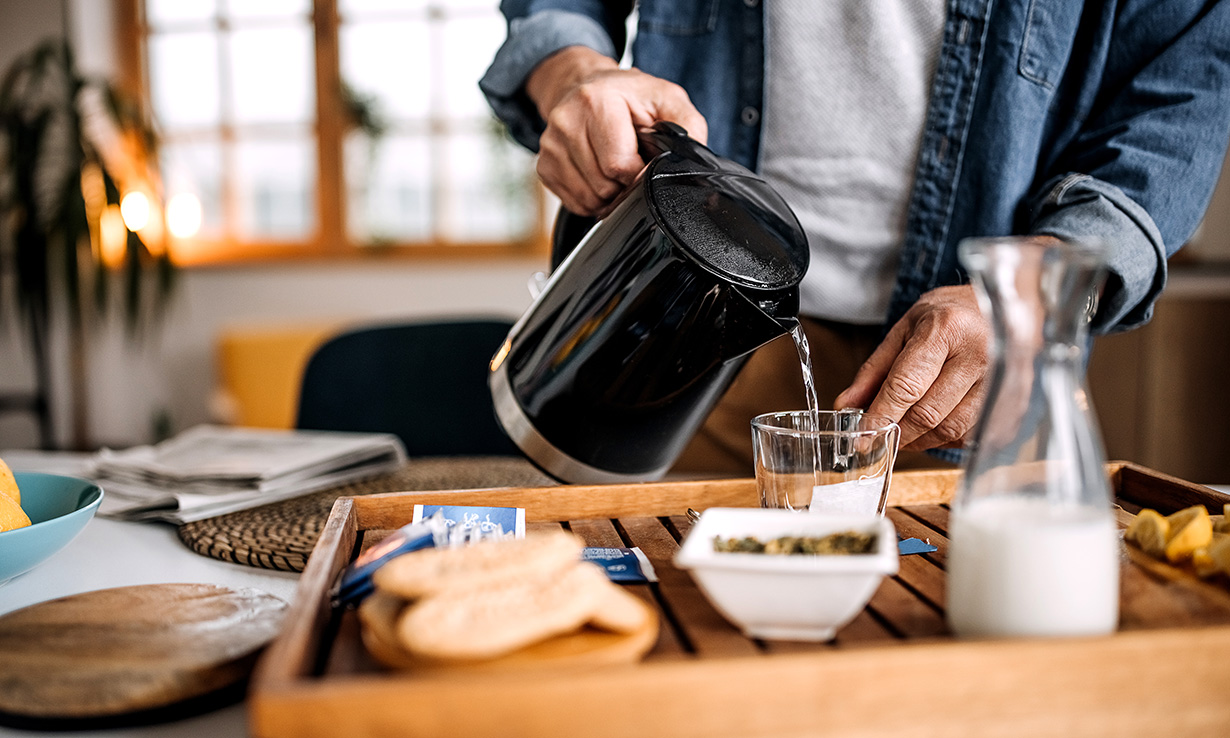
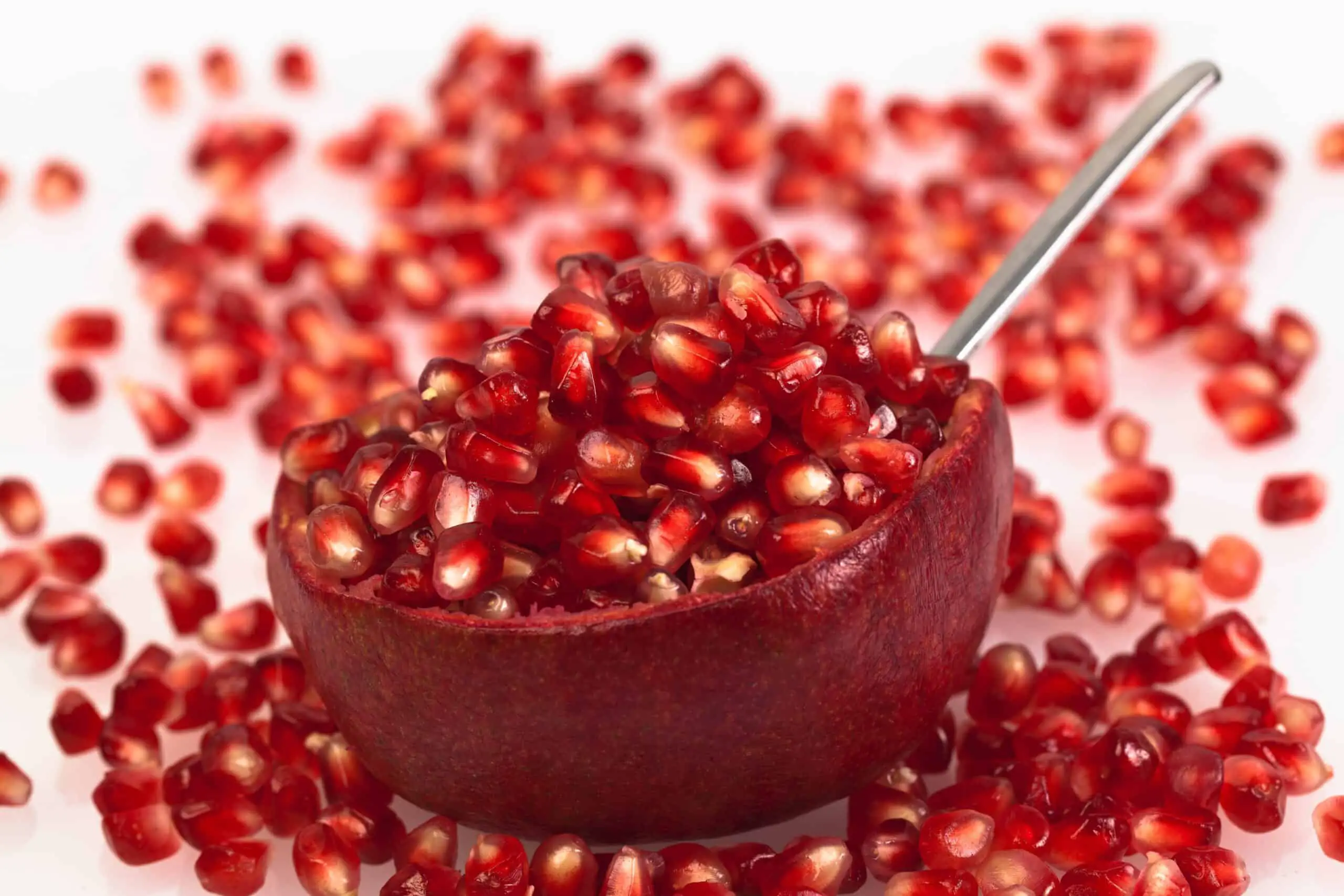
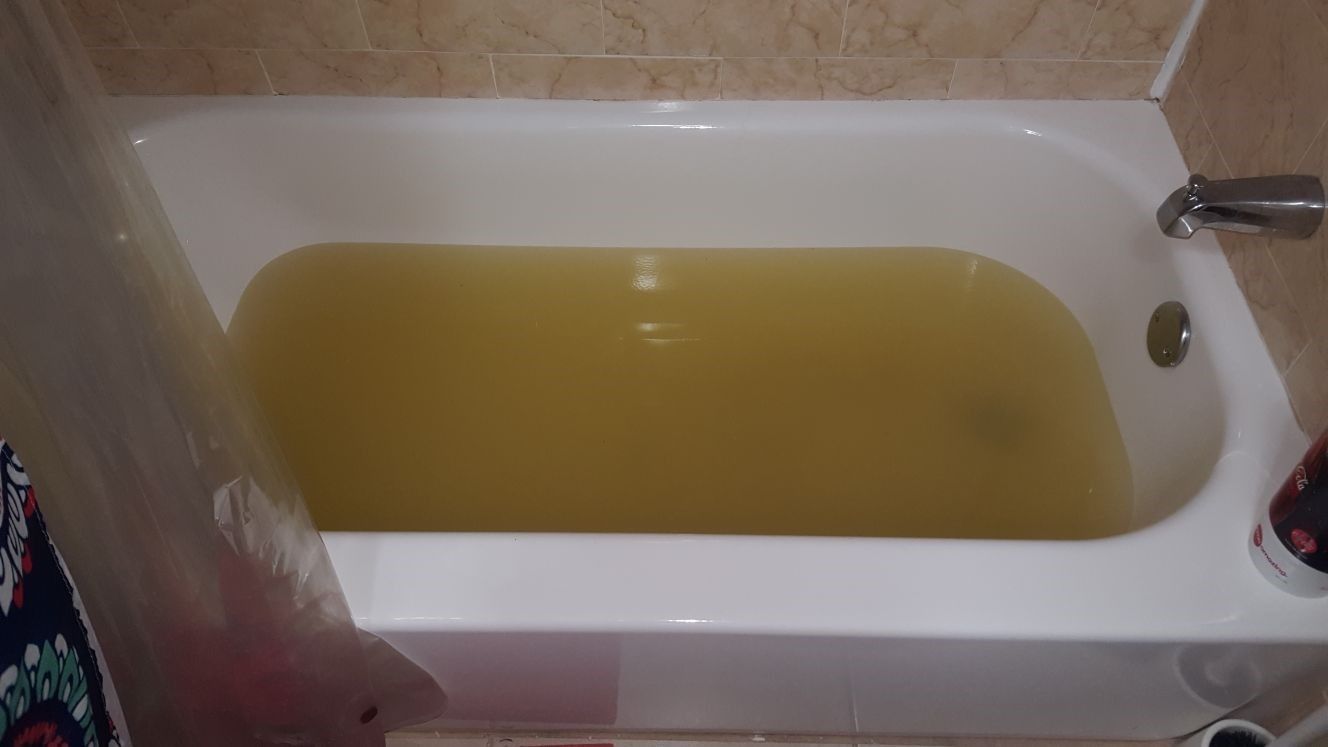


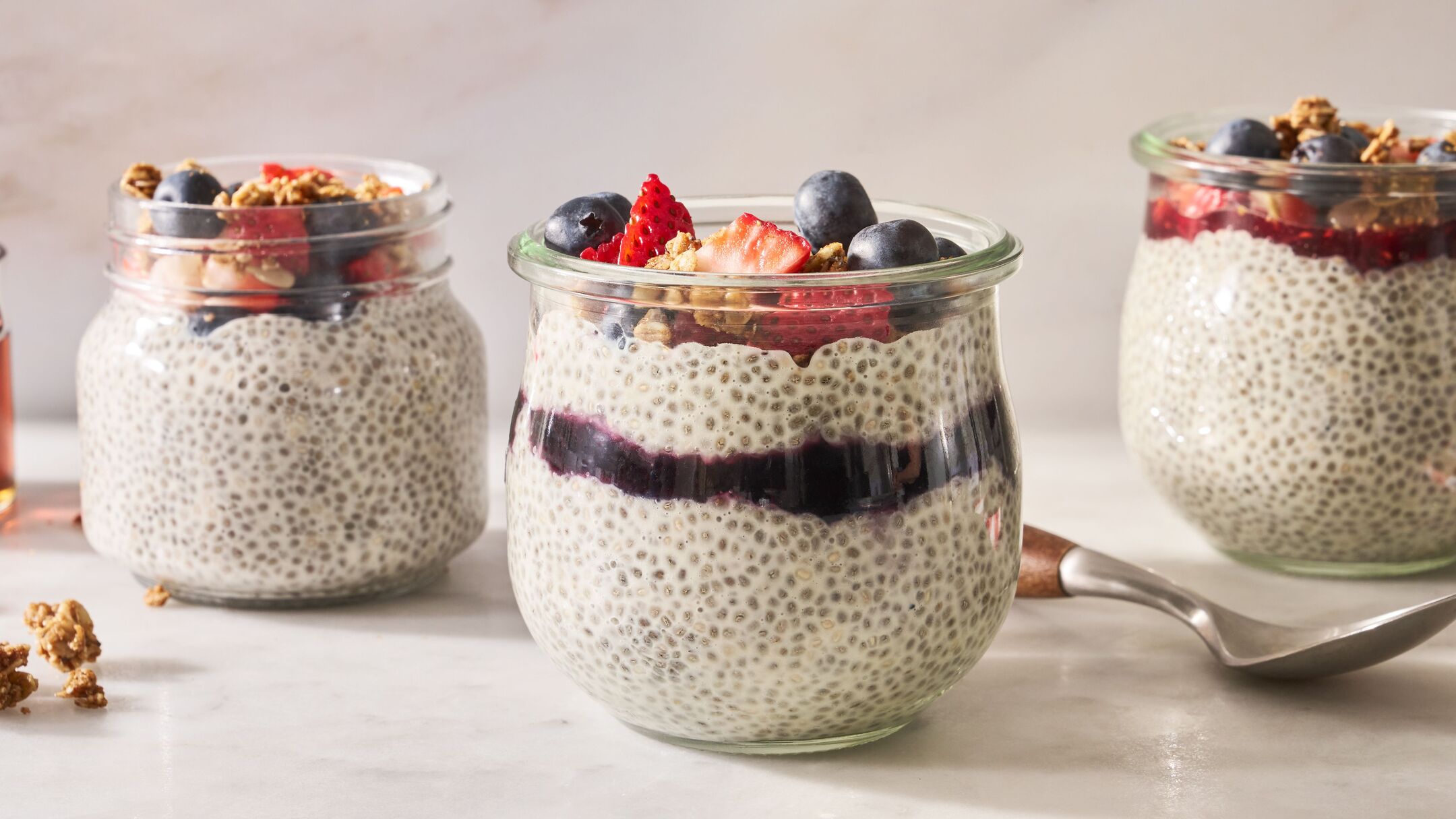
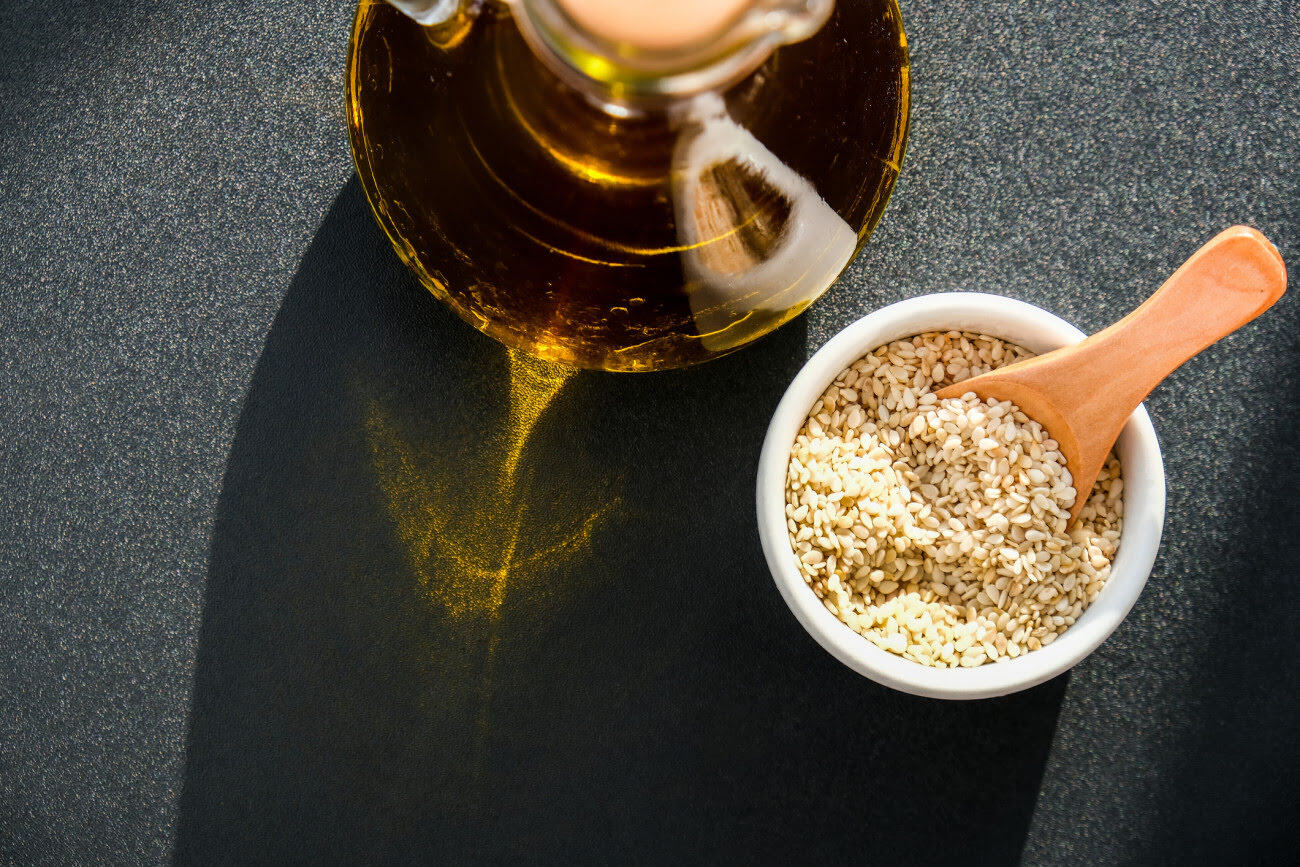
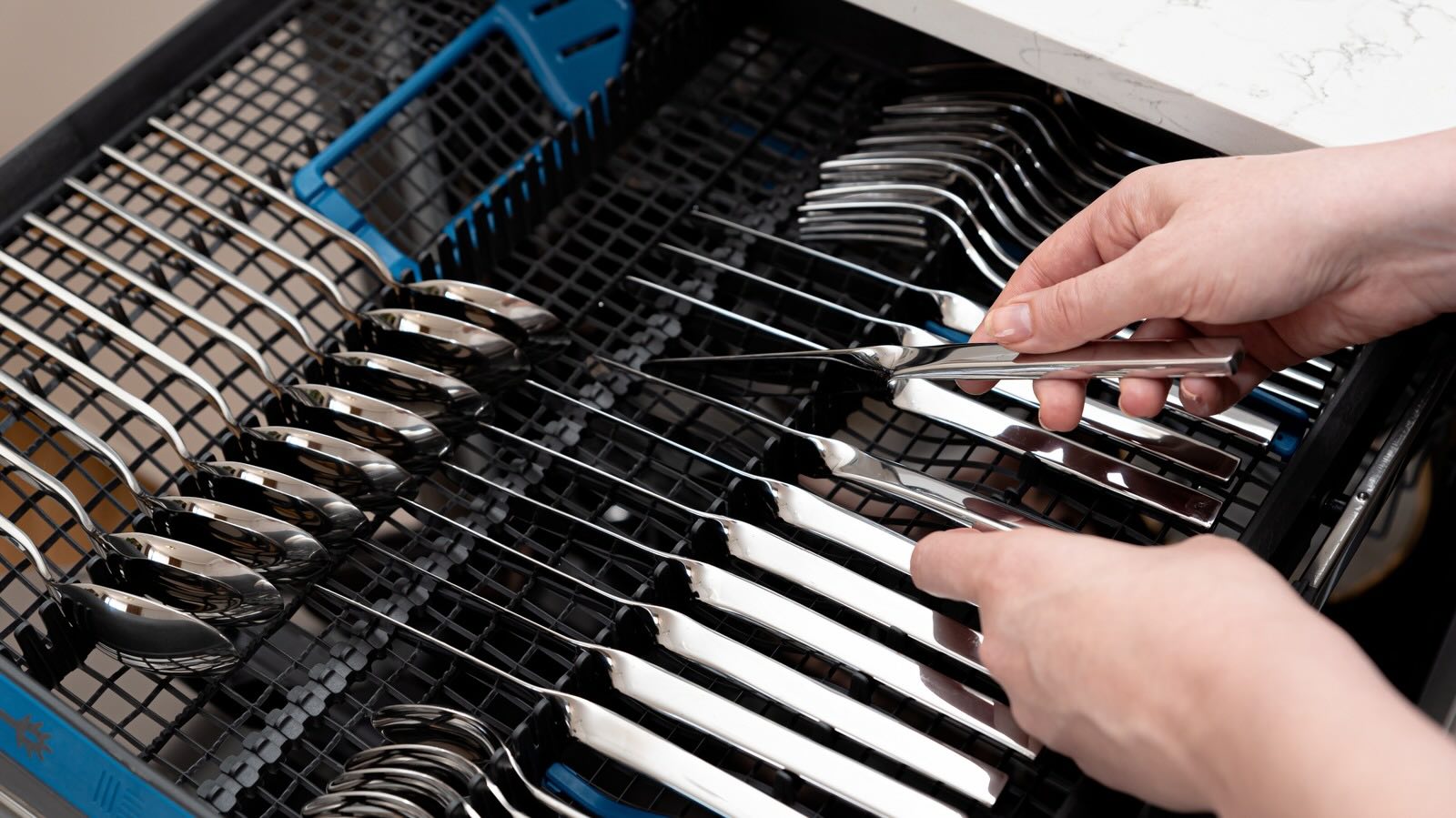




0 thoughts on “Why Does My Silverware Taste Like Metal”